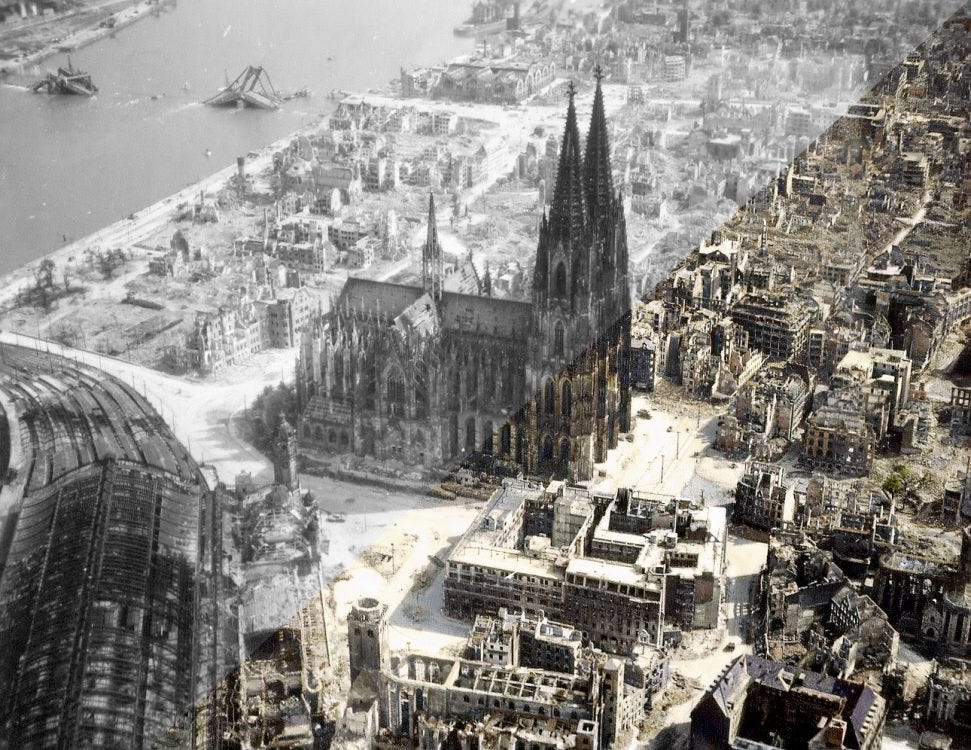All revolutions are humourless - and this causes their fall.
Oswald Spengler, ‘The Hour of Decision’
On the eve of the Second World War, historian Oswald Spengler contemplated the future of European civilization in his short work, The Hour of Decision.
Spengler believed the world was undergoing an epoch greater and more terrible than the times of Caesar and Napoloen, that the entire culture-civilization of ‘Faustian western man’ hung in the balance as the Age of Rationalism came to its cataclysmic conclusion in the party politics of mass democracy wherein quantity supersedes quality.
For Spengler, history is the study of High Cultures, cultures which summon their constituents into something with soul, a kind of organism which becomes a participant in History.
Culture grows, expresses itself, creates great art, expands with a pulsating spiritual life force, until it stultifies into mere Civilization, lived in Great Cities, and eventually dies. This fate is as unavoidable for a High Culture as it is for any organism.
But he also believed that in the final decline of a High Culture some great destiny could be achieved in a final burst of spiritual feeling, accompanied by a collision of blood and iron. (I think here of the story of Samson, destroying the temple of his enemies.) This is the decision we face now, at this hour. How will we end? How will the tragedy be consummated?
The stakes are higher for Western civilization than others. While Arabian (or Magian) culture had been formed around the image of the desert cave, or the Greco-Roman (Apollonian) culture around the idea of the beauty of the human body, European culture is characterized by the idea of the infinite, of a reaching to the sky and stars exemplified by the Gothic cathedral. But this was a kind of Faustain bargain. We give up so much in this technological, Viking-style conquest that constantly reaches away from the local and the immediate. Eventually our technology masters us. Equally, this drama of the culture is thus played out on a planetary scale with an intensity of risk.
Whilst this great tragedy is explored in depth in his opus, The Decline of the West, his shorter, more accessible Hour of Decision focuses on the political and social stakes of our current time, and the burden borne in an age of great technology, accompanied by the rule of tawdry politicians, ‘labour’ leaders, journalists, and political party machinery: the ‘late men’, dominated by a ‘rootless urban intelligence’ lacking soul. Nothing is comic, nothing is tragic. The planners dominate all.
Will such men have the last word in our story? Will the ‘critics’ of the rational age simply allow us all to fade away in a dusky fog?
(For my paid subscribers, I will be exploring important books and works of art that shed light on the current global crisis. For a small monthly cost, you can gain access to such essays.)
Keep reading with a 7-day free trial
Subscribe to Chris Waldburger to keep reading this post and get 7 days of free access to the full post archives.



